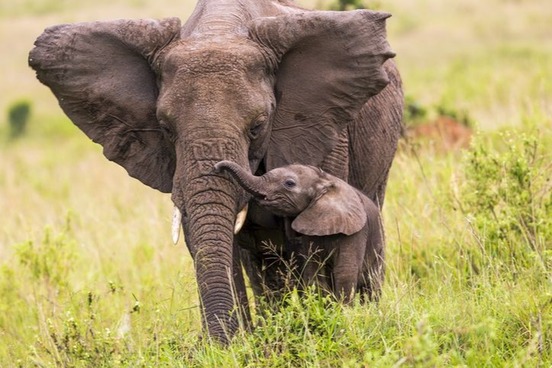
Elephant parent
The term elephant parent refers to a parent who is very nurturing and protective and tends to focus on the emotions of his or her child over academic or athletic success.
An elephant parent is relaxed about their child's academic achievement or sporting prowess. Instead, they prize emotional security and connection. In common with attachment parenting, they may favour physical closeness as well.
— Rosa Silverman, The Telegraph (UK), 21 Mar. 2019
The female pachyderm herself is known for protectiveness and close connection with her calf—and her amazing memory (as the adage goes "an elephant never forgets").
Physically, the elephant is characterized by a snout elongated into a muscular trunk, which is used to hold things as well as to drink, eat, and communicate. Additionally, it has two tusks, wide, flat ears, and columnar legs. The elephant is most often seen in savannas, grasslands, and forests of tropical and subtropical regions of Africa and Asia.
The animal's gestation period is long (about 18-22 months), and given the adult elephant's size, the newborn is hefty. After birth, the parents separate, and the mother takes care of her calf in a family group of female cows. The calves enjoy their motherly up-bringing, which may have influenced the application of elephant parent for a nurturing and protective parent.
The name elephant derives from Anglo-French and Latin. In early English, Anglo-French olifant came to refer to not only the animal but to a hunter's horn made from an elephant tusk. The English "e" spelling of the animal's name, however, is influenced by the Anglo-French elefant as well as Latin elephantus and Greek elephant-, elephas.
In American slang, "to see the elephant" implies gaining worldly knowledge or seeing something remarkable.
To see the elephant in this ever-shrinking world—a world with rovers on Mars, probes speeding past Jupiter, a map of the human genome, cars that park themselves, cloned sheep and restaurants that serve breakfast all day—requires a higher definition of exotic.
— Tom Verducci, Sports Illustrated, 27 Oct. 2018
A child of an elephant parent might be hesitant to venture out "to see the elephant," but elephant mom and dad will probably start encouraging it once their child becomes a teenager.
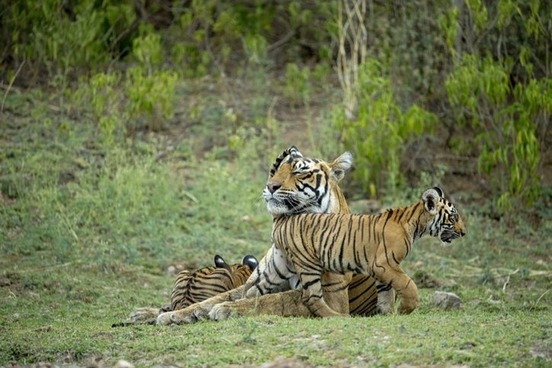
Tiger parent
The tiger parent doles out tough love, is strict and demanding, and makes sure that academics and extracurricular school activities are a priority.
"A tiger parent sets extremely high goals for his or her child, usually academic, and drives the child relentlessly to achieve these goals," says Jenny Grant Rankin, Ph.D., educator and author of Sharing Your Education Expertise with the World. "Once each goal is reached, another is immediately set, so there is no break from the parent's demands."
— Good Housekeeping, 23 Apr. 2019
The word tiger commonly refers to a tawny-coated, striped with black, wildcat, but it has been applied to other cats having different coats as well, such as the jaguar or the cougar. The animal name is from both Latin and Greek and is believed to have originated in Iranian and to be akin to Avestan tighra-, meaning "pointed," and tighri-, "arrow." That word history reflects how the tiger quickly, and unexpectedly, strikes its prey. The first use of tiger for a fierce, daring, or aggressive person occurs about early 16th century.
"Dungin is the deidly dragon Lucifer, / The crewall serpent with the mortall stang; / The auld kene tegir, with his teith on char, Quhilk in a wait hes lyne for us so lang…."
— William Dunbar, "Of the Resurrection of Christ," ca. 1513

Helicopter parent
Helicopter is a 19th-century borrowing of French hélicoptère, and it refers to an aircraft whose lift is generated by aerodynamic forces acting on a powered rotor turning about a vertical axis that enables it to take off and land vertically or to remain stationary in the air. (The first useful helicopters for travel did not appear until the early 1940s.) The name is ultimately derived from Greek helix, meaning "spiral," and pteron, "wing."
In the late 1980s, helicopter parent took flight as a term for a parent who is overly involved in the life of their child, especially with regard to seeing him or her excel in school, in sports, or in a job (even after the child has become an adult). The term derives from the notion of such a parent "hovering" over—and overseeing—their child.
But don't be what Mr. Radovich calls "a helicopter parent," who hovers over children, making sure everything is done for them.
— Frederick (Maryland) News-Post, 6 Sept. 1989
The helicopter parent not only hovers but will swoop down to sweep up any trouble his or her child might encounter from getting a bad grade to being given too much work at the office. (Swoop is an alteration of Middle English swopen, meaning "to sweep," from Old English swāpan, which is also the source of Middle English swepen and modern English sweep.)

Lawnmower parent
The term lawnmower parent is based on the notion that the parent "mows" a clear, well-groomed path to success that is free of obstacles and the weeds of adversity and struggle.
Everyone has a lawnmower parent moment to share, Hannah Hudson, WeAreTeachers.com Editorial Director told All the Moms. "I think everybody has been a lawnmower parent at one time," Hudson said. "Even teachers because they're parents, too. It's a natural tendency to want to help kids." Hudson shared lawnmower parent stories …: The parent of a high-school student who asked a teacher to walk a student to class to assure that the student would not be late. An emailed story about a parent who requested someone from the cafeteria blow on their child's too-hot lunch to cool it down. A parent who called to schedule a make-up test when the student was clearly old enough to request a time.
— Sonja Haller, USA Today, 19 Sept. 2018
Generally, experts agree that it may be best to let the grass grow and have the child stumble every once in a while.
Lawn is from the Middle English word launde, a borrowing of Anglo-French launde, which has the opposing meanings of "wood" and "unwooded field" and is of Celtic origin. In English, lawn originally referred to an open space between woods (a glade) or a level stretch on a mountainside before it was applied generally as a word for ground covered with grass that is kept closely mowed.
Early use of mower referred to a person who cuts grass with a scythe. That sense goes back to the 13th century; the "machine" sense dates to the 19th century.
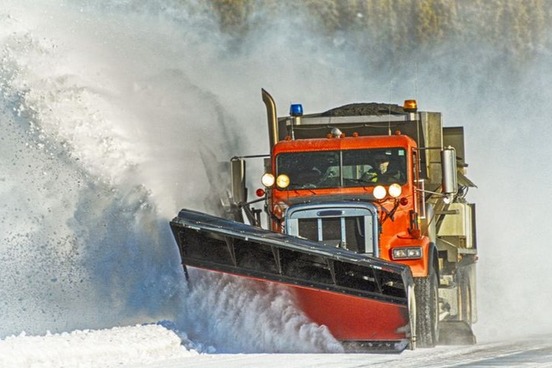
Snowplow parent
The snowplow parent is often more aggressive than the lawnmower parent in clearing (plowing, after all, does require more force) their child's road to academic or athletic success so that their child doesn't hit any obstacles that might make him or her feel the emotions of failure, frustration, or humiliation.
The parenting website, the Stir, gave seven signs that you might be a "snowplow parent." Here are four of them: If you ever tried to get your child switched to another class to be with his/her friends. If you've offered incentives to a coach to help your child make a team or get more playing time. If you help your child with every homework assignment and project. If you try to have your child's grade changed—especially in college.
— Les Masterson, Patch, 12 Nov. 2013While "helicopter parents" hover, snowplow parents eliminate obstacles. The average snowplow parent may not commit fraud or bribery, but uses influence in other ways, by doing homework for a child, pleading with teachers to improve a child’s bad grade, or pushing for undeserved admission to an honor society. A snowplow parent may complain about a child's lack of playing time in a sport or a child not making the team.
— Meghan Walls, Philly.com, 27 Mar. 2019
Snow is from Old English snāw. The word plow (or British plough) was also sown in Old English as plōh, meaning "a piece of land capable of being tilled" or, more specifically, "plowland," "carucate," or "hide of land." It was seeded as a name for an implement to cut, lift, and turn over soil in Middle English. Snow and plow were joined together in the 18th century as a compound term for various devices used in clearing away snow from a road, railroad, etc.
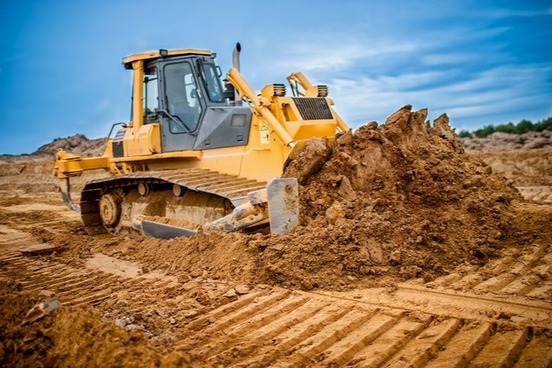
Bulldozer parent
Certainly an earth-moving bulldozer in action can be compared to a bull plowing forward, but the first bulldozer was an animalistic human. The origins of the verb bulldoze are suspected to be the name of the animal and the medical term dose (a variant spelling of bulldoze is bulldose). The verb is a late-19th century Americanism and was initially used to refer to a severe beating or flogging, especially one in a dose fit for a bull, before it gained its specific sense of intimidating by violence or threats especially for political purposes.
There was a bad case of "bulldozing" in Cincinnati on Monday night. A handful of bold Democrats had gathered to let out their pent-up desire for Tilden or blood.
— The New York Tribune, December 1876The Democrats complain of the amounts of money they had to face, but that was not such a source of trouble as the bulldozing of voters by the mining bosses. — The Detroit Evening Journal, 20 Feb. 1888
Bulldozer named the people carrying out coercive bulldozing before being applied to the early-20th-century machine that forcefully pushes aside everything in its path. It is possible that the machine was so named by an association of the forceful bulldozing of people by intimidation with the violent changing of the earth's contours by force.
A bulldozer parent is most often conceived as the machine that removes things, but the "intimidator" sense of bulldozer could be applicable in some cases of bulldozer parenting. A bulldozer parent pushes any obstacle that might result in frustration or a setback out of his or her child's way and levels a smooth path for their child's journey through life, especially academically.
The mother sat in my office. Her daughter, my advisee, was failing three of her four classes. Perhaps, the mom suggested, a private tutor might be hired, to help her child get back on track. "Perhaps," I said, trying to be compassionate. … What I wanted to say was, "My suggestion would be that your daughter actually start going to all the classes she's skipping, to maybe also start doing the homework." Instead I let the mom talk. "The thing is," she said, "she's really a good kid." And it was at this moment, I believe, that my heart broke in half—for the mom, for her child and for all of us still trying to figure out the best way to shepherd young people into adulthood. Some people would describe that mom as a "bulldozer parent," engaging in a more aggressive form of what we used to call "helicoptering."
— Jennifer Finney Boylan, The New York Times, 3 Oct. 2018
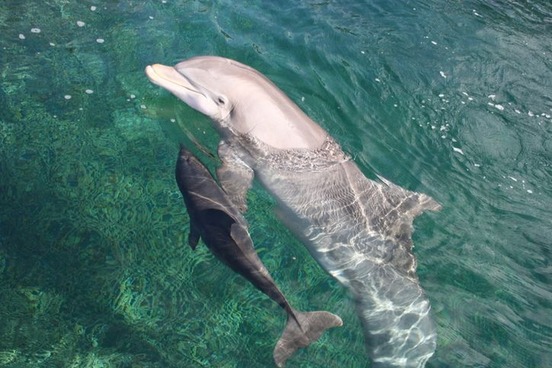
Dolphin/Jellyfish parent
Dolphin commonly refers to a small, usually gray, toothed whale that has a pointed snout. In Middle English, it was spelled delphyn (or dolphyn), based on Anglo-French delphin (an alteration of Old French dalfin, derived from Latin delphinus and Greek delphis, which itself is from a Greek word meaning "womb").
Shimi Kang uses the term dolphin parent in her book The Dolphin Way: A Parent's Guide to Raising Healthy, Happy, and Motivated Kids Without Turning into a Tiger. She explains the term in a May 18, 2014 article in Psychology Today:
The dolphin parent is ... authoritative in nature. Like the body of the dolphin, they are firm yet flexible. Dolphin parents have rules and expectations but also value creativity and independence. They are collaborative and use guiding and role modelling to raise their kids.
She also discusses the concept of a jellyfish parent. "These parents," she writes in Parenting, "have few rules and expectations, 'give in' to avoid confrontation, lack authority and are generally overly permissive."
The jellyfish is a marine creature that is typically free-swimming and bell-shaped, and it is soft. Jellyfish is also used for a person who lacks backbone or firmness. So the designation jellyfish parent seems apt.
Another "less strict" parent is the free-range parent, who believes in building a sense of resiliency in children by allowing them a relative amount of freedom:
I am a free-range parent. My kids always have had the freedom to walk to a neighbor's house, use the bathroom alone in stores and restaurants and even play outside for hours without me there keeping an eagle eye on their every move, waiting fearfully for that stranger to snatch them right from under my watchful eyes. I've even allowed the youngest to hang out in the toy section at the store—by herself—and walk down the driveway to get the mail—by herself. They have both fallen out of trees, fallen off bikes and scraped their knees and elbows doing the things that kids do. I wasn't there hovering around to tell them, "No, no! Don't do that, it's too dangerous!" They fell, got right back up and learned a life lesson in the process.
— Jennifer A. Bowen, The Belleville (Illinois) News-Democrat, 29 Aug. 2009
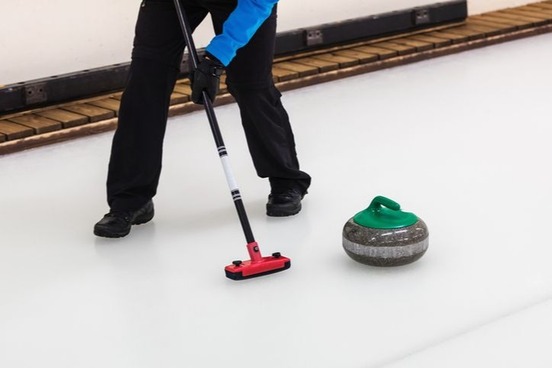
Curling parent
The sport of curling involves players sliding ellipsoid stones (by means of a gooseneck handle) over a stretch of ice toward a target circle, and it resembles shuffleboard or lawn bowling (or bowls). It's a team sport that involves considerable strategy. A unique aspect of curling is sweeping. Team members sweep the ice with brooms ahead of the moving curling stone to remove foreign objects that might slow up or deflect the stone or because they believe the sweeping has an effect on increasing the length of delivery to the target.
In countries in which the sport is popular, the term curling parent is sometimes used. Like a sweeper in the sport, a curling parent makes efforts to remove all obstacles that their child might encounter as they progress to adulthood.
The first sign of backlash against an ever-safer Sweden came in 2004, when the newspaper Svenska Dagbladet set off a furor with a profile of the Danish psychologist Bent Hougaard, who had coined the term the "curling parent." The reference is to the sport of curling, played on ice, in which players frenetically sweep the ice to remove any obstacles in the way of a heavy stone gliding toward a target. Modern parents, the article suggested, similarly remove all obstacles for their children, depriving them of the important insight that difficulties and dangers are natural parts of life. This reasoning seemed to find support among many Swedes, who recognized themselves as doting parents whose overprotective ways made their children unprepared for life's challenges.
— Ivar Ekman, The New York Times, 23 Jan. 2006





